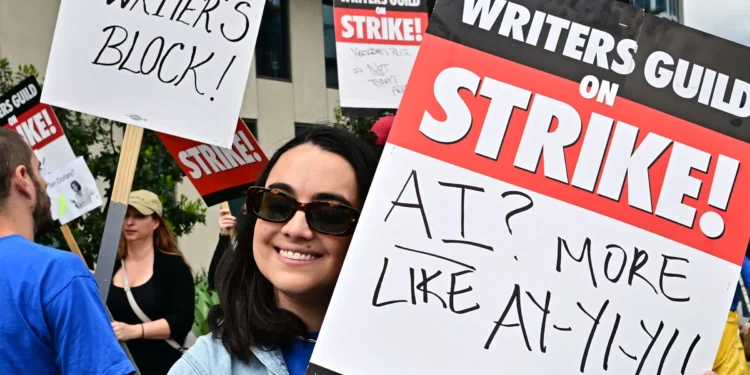The Writers Guild of America (WGA) is calling on Hollywood’s major studios to take decisive action against the use of their members’ works in AI training. WGA leaders from both the East and West coasts have demanded that studios initiate “immediate legal action” against any companies that have used writers’ work for training AI models. The demand was made in a letter sent to top executives at Warner Bros. Discovery, Disney, Paramount Global, NBCUniversal, Sony, Netflix, and Amazon MGM Studios on Wednesday.
The letter emphasizes that the studios must no longer remain passive. “It’s time for the studios to come off the sidelines,” the letter asserts, highlighting the irony of the entertainment industry’s fight against piracy for decades while now allowing tech companies to “steal full libraries of content” for their own profit.
The WGA’s concerns stem from a November 18 article in The Atlantic, which reported that companies like Apple, Meta, Anthropic, Salesforce, and Nvidia were using a dataset sourced from OpenSubtitles.org to train AI systems. This dataset reportedly included dialogue from shows such as Breaking Bad, Twin Peaks, and even Academy Awards broadcasts. The Guild views this as evidence that tech firms have exploited writers’ intellectual property—produced by union labor—to develop their AI models.
The union argues that this exploitation is not only theft but also a violation of the studios’ responsibility to defend writers’ copyrights. According to the Guild, the collective bargaining agreement between the studios and the WGA mandates that studios protect writers’ intellectual property. Specifically, the agreement states that studios hold certain rights “in trust” for writers, including the right to use those works for AI training. By allowing tech companies to access these works without permission or compensation, the studios are failing to uphold their obligations.
The WGA also points out that the studios’ inaction has directly harmed its members, as tech companies now seek to profit from AI-generated content based on works created by WGA writers. The Guild is urging the studios to take legal action against any companies that have used writers’ work for AI purposes, warning that failure to do so will continue to enable exploitation of the labor behind Hollywood’s content.
The letter urges the studios to stop this growing trend of AI companies using copyrighted material without compensation. “The studios must act,” the WGA demands, stressing that they have a responsibility to defend their writers’ works in the face of this new form of technological piracy.


